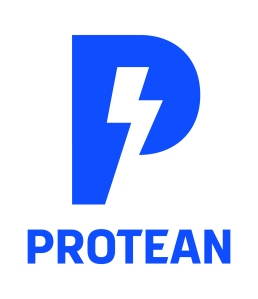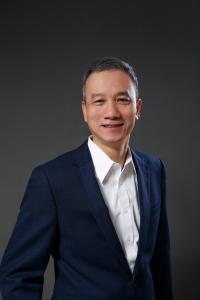Protean Electric gaining traction in U.S., China with in-wheel motors — finally


The proof is in the pudding, as the saying goes. I’m not exactly sure what that means, but I think it applies to Protean Electric’s current situation. I’ve been writing about Protean since 2012. The “start-up” is still chugging along, still working to get automakers to give its in-wheel electric motors a try. “We have found it is very difficult to convince OEMS to use our motor,” Protean CEO KY Chan told me recently. It needs some pudding to prove its product. That may finally be happening.
Electrification takes many forms. Protean Electric, based in the U.S., U.K., and China, makes in-wheel electric motors. To quote its web site: “Our aim has been to create an in-wheel motor with integrated power electronics and digital control that can be packaged with a brake as a single product.”
Though it is ten years old, Protean is still in start-up mode as it is still “burning shareholder capital,” says Chan. It landed $40 million Series E funding earlier this year in new equity and manufacturing licenses. The majority of that funding – some $30 million – came from Weifu High Technology Group Co. Ltd, which now owns 12.34 percent of Protean, according to an announcements by Weifu and Protean. The two companies will establish a joint venture in Wuxi, China to manufacture ProteanDrive Pd18 in-wheel motors, which are designed to fit an 18-inch wheel rim.
Protean has another site in China, in Tianjin. I wrote about that in March of 2016. It houses what Chan refers to as a “prototype line” where it can produce motors for customers that need small quantities – several dozen, say – to help those customers make up their minds about the product. That plant has also aided Protean in developing its supply chain in China. “When Weifu and U.S. licensees want to scale up, they can rely on our original suppliers,” says Chan.
The in-wheel motor maker has received small purchase orders from eleven OEMS in China to test the technology, he says. If they decide to scale up, they will buy the motors from the Weifu plant, says Chan.
Protean doesn’t plan to expand the Tianjin site into large scale manufacturing, he adds. “Our mission is in the next two years before our China licensees scale up, they can rely on Tianjin to build prototypes.”
As we all know, or anyone reading this is likely to know, China has an ambitious plan to grow its electric vehicle sector. It has mandated that automakers produce a certain volume of electrified vehicles or pay fines – a policy similar to California’s Zero Emission Vehicle (ZEV) policy, which indeed was a model for the China policy. Concurrently, Beijing is rolling out an updated Corporate Average Fuel Consumption (CAFC) policy. Automakers must meet that as well. So, OEMs in China are interested in Protean’s in-wheel motors, which can help meet both targets as they can also improve fuel efficiency.
The key, of course, is to get OEMs to try the motors. And while Protean has always believe its biggest opportunities would be in the passenger vehicle segment, says Chan, for the next several years, “our business will mainly come from the logistical vehicle manufacturers.” Indeed, in March of 2018 Protean signed an agreement with Consolidated Metco Inc. (ConMet) to develop in-wheel motors for the medium- and heavy-duty vehicle markets.
ConMet, based in Vancouver, WA, is a global supplier of components to the commercial vehicle markets. Protean and ConMet have already put a motor and battery system together and are promoting the system to customers such as Volvo Heavy Duty and Scania, says Chan.
It also just announced a deal with Linamar Corp. , a huge Canadian automotive parts manufacturer, under which Linamar will manufacture Protean’s in-wheel motors for both the commercial and passenger car segments.
Waste delivery vehicles is a promising area, says Chan. Garbage trucks, as such vehicles are commonly known, stop and start over and over again. “Using a Protean motor would save a lot of energy,” says Chan. Another promising segment – cold chain delivery trucks that deliver to supermarkets and the like. The container is a big refrigerator that traditionally uses a diesel engine as a compressor to keep the container cold.
“What ConMet and Protean would be providing is a way to use the action of the vehicle to generate energy through the Protean motor, that can be used for the refrigeration,” says Chan. The product they offer is a complete system including a battery, electric motor, and battery management system, says Chan. Competitors generally only offer the electric motor, says Chan.
Protean is also talking with another customer in the U.S. that he can’t reveal, says Chan. That customer, a major Tier One supplier in the Detroit area, has agreed to become a Protean licensee. The deal is quite important for Protean because it will give major OEMS more comfort in dealing with Protean, says Chan. Until now, they have hesitated because of his firm’s small size, he says. That pudding is beginning to gel.
Given its growing U.S. business, Chan has relocated from Asia to the San Francisco Bay Area. His kids all work in the Bay Area, so that was another factor, he says. It has a small presence, just Chan, a VP of U.S. sales, and a few others. “Hiring is very difficult” in the Bay Area, he sighs.
Back in China, Protean is eyeing another business opportunity as well – ride hailing. The central government in China has recognized that convincing Chinese consumers to buy electric vehicles may be even tougher when the current hefty incentives are phased out by 2021. So, Beijing is encouraging Didi Chuxing, the giant of the ride-hailing segment in China, to go all electric, he says.
Didi doesn’t want to produce its own EVs; it is encouraging Chinese automakers such as FAW and SAIC and BAIC to produce them and to lease the EVs to Didi drivers. “I would like Didi to mention to the OEMs that they should look at in-wheel motors,” says Chan.
Good to read about the recent Protean news.
I met Bob Purcell, Proteans CEO, while working in China as the GM Electrification Strategy Manager, about 2010. Bob and knew each other from his years at GM PowerTrain, when he was Executive Director for outside sales (marine engines, automatic transmissions …). Bob was also CEO of Boston Power, with operations in China and sales to BAICs SAAB EV.